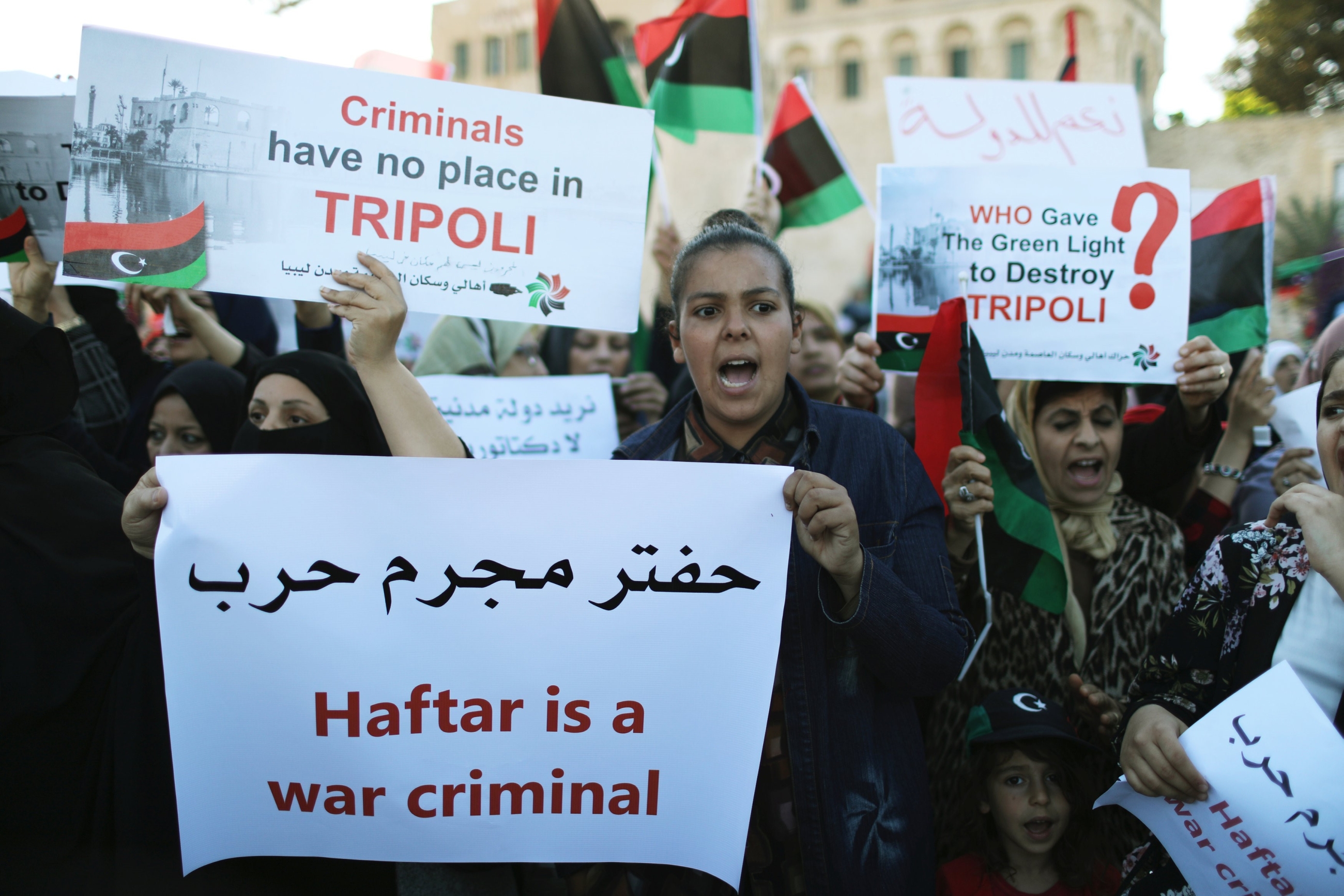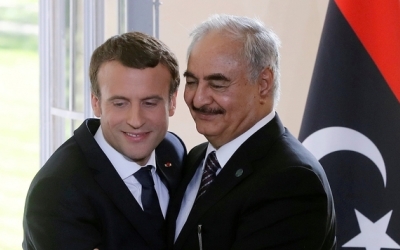Britain calls on UN Security Council to demand ceasefire in Libya

The UK has called on the UN Security Council to demand an immediate ceasefire in Libya after forces loyal to eastern commander Khalifa Haftar launched an offensive on Tripoli.
The proposals, obtained by AFP, called on Haftar's Libyan National Army (LNA) to "de-escalate the situation, commit to a ceasefire, and engage with the United Nations to ensure a full and comprehensive cessation of hostilities throughout Libya."
New MEE newsletter: Jerusalem Dispatch
Sign up to get the latest insights and analysis on Israel-Palestine, alongside Turkey Unpacked and other MEE newsletters
Britain's proposals also described the LNA as a force that "threatens the stability of Libya and prospects for a United Nations-facilitated political dialogue and a comprehensive political solution to the crisis."
Since fighting began in early April, dozens of people have been killed with more than 18,000 displaced.
Britain circulated the text late Monday and the first round of negotiations is to be held later Tuesday, diplomats told AFP.
The UK hopes to bring the measure to a vote at the council before Friday, but diplomats said it remained unclear whether negotiations on the measure would wrap up that quickly.
Resolutions adopted by the council are legally binding.
Influence in Libya
The proposed measure echoed a call for a ceasefire by UN Secretary-General Antonio Guterres, who was in Libya to personally advance prospects for a political solution when the offensive was launched.
Haftar has declared he wants to seize the capital, now controlled by a UN-recognized government and an array of militias.
The draft resolution calls on all sides in Libya "immediately to re-commit" to UN peace efforts and urges all member-states "to use their influence over the parties" to see that the resolution is respected.
Diplomats have long complained that foreign powers backing rival sides in Libya threatened to turn the conflict into a proxy war.
Saudi Arabia is also seen as a key Haftar supporter while Qatar - which has tense ties with Riyadh and Abu Dhabi - has called for stronger enforcement of the UN arms embargo to keep weapons out of Haftar's hands.
Russia last week blocked a draft council statement that would have called on Haftar's forces to halt their advance on Tripoli.
Russia and France, two permanent council members, have praised Haftar's battlefield successes in defeating Libyan armed groups aligned with the Islamic State in the south of the country.
Haftar's offensive on the capital forced the United Nations to postpone a national conference that was to draw up a roadmap to elections, meant to turn the page on years of chaos since the 2011 ouster of Moamer Kadhafi.
Guterres has said that serious negotiations on Libya's future cannot resume without a ceasefire.
Middle East Eye delivers independent and unrivalled coverage and analysis of the Middle East, North Africa and beyond. To learn more about republishing this content and the associated fees, please fill out this form. More about MEE can be found here.


